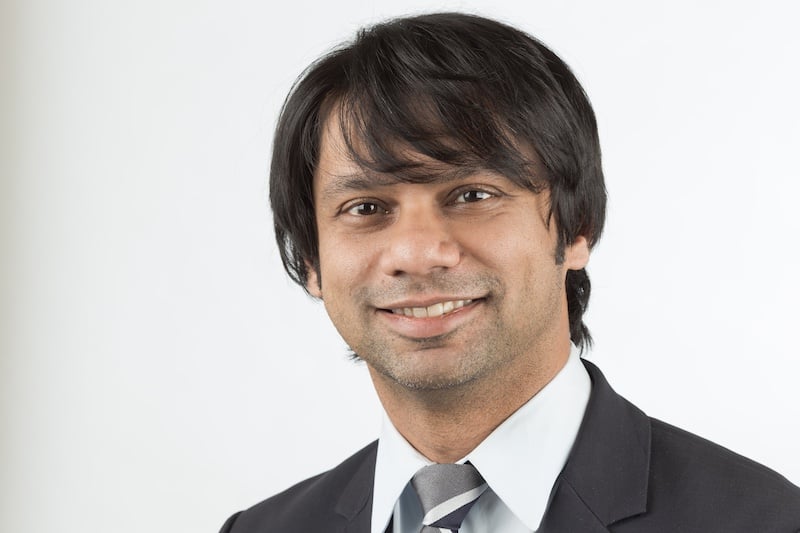Novartis’ Kymriah, one of the first CAR T-cell therapies to be approved to treat blood cancer, has revolutionized both oncology and gene therapy. Gaurav Shah, now CEO of Rocket Pharmaceuticals, led the team that developed it.
Shah began his career as a clinician, but soon moved over into the biotech sector to work at ImClone, a subsidiary of Eli Lilly, developing monoclonal antibodies for cancer treatment.
Deciding that he wanted to learn from being at a bigger company, Shah accepted an offer to work at Novartis. After a couple of years, he began working on the CAR T-cell therapy program to treat B-cell acute lymphoblastic leukemia that led to the development of Kymriah.
In 2015, with Kymriah nearing approval, Shah left the big pharma and accepted an offer to be founding CEO of a new gene and cell therapy biotech in New York. Rocket Pharmaceuticals focuses on developing treatments for rare diseases like Danon disease and Fanconi anemia.

What made you move to the biotech industry?
I went through a long medical path and a lot of training, medical school, internal medicine, then neuro-oncology, and ended up at Memorial Sloan Kettering Cancer Center.
In my last year, I was introduced to a venture capitalist. I got pretty broad exposure to thinking about helping people in a different way, through drug development. We looked at something like 300 companies together, and the idea of innovating, from science to bedside at the early stage, really attracted my attention. Identifying and building teams and companies made for some of the most interesting dialogues I’ve ever had.
I ended up transitioning into biotech after my fellowship. I never became a fully practicing physician, but went into the drug development side, and I have never looked back. It was definitely the right decision for me.
What were the key differences between working in biotech and big pharma?
In biotech, you learn to do a lot of things. The advantage of being in a biotech company versus big pharma is that you wear many hats. When I came into the biotech company, I was running something like five phase II clinical trials. As a first job that would never have happened in a big pharma company.
In big pharma, you learn to think deeply about data monitoring, data collection, statistical designs, and get much more involved in late-stage agency dialogues. It’s a deeper skillset for a medical person compared to biotech, where you’re doing a lot of things and wearing multiple hats.
Biotech is not always the best place to learn late-stage drug development. Sometimes you have to get those skills in the context of a seasoned team who has launched drugs. So when an opportunity came up at Novartis to run a brain tumor trial, I took that.
How was the experience of working on the first generation of CAR T-cell therapies?
It was definitely exciting behind the scenes. There were a lot of unknowns, but it was definitely a cool project. I felt very lucky. I just got a phone call one day before the holidays in December asking me to be the clinical lead on that program. I don’t know where it came from, but I said yes.
At the time the developers were Carl June and the oncology group at Novartis. This was well before the cell and gene therapy unit of Novartis started. No one knew what it was going to be, but everyone knew it was good science and there was good clinical data early on.
That journey was fun: learning how to take those initial results, really think about them deeply, and then start talking to the regulatory agencies about an institutional sponsor trial and an industry sponsored trial. That was hard, but we learned a lot. Not only on behalf of Novartis, but for the whole industry.
Has gene therapy changed since you started out in your career?
Yes, it has. First of all, these aren’t medicines; these are cures. If a gene is dysfunctional, and you fix the gene, then theoretically the person should be cured.
Since CAR T was developed at Novartis, there’s a lot more globalization. The number of platforms has also increased and these technologies have really improved. Another change is the realization of the number of diseases out there that could be impacted by these platforms. So it’s sort of become a land grab between academics and industry to find those diseases, and go after them before anybody else does.
Both the FDA and EMA have really become partners at the table with industry and with academics to help support gene therapy programs. They’ve been very open to thinking of gene therapy in a different way than traditional medicines, because of the possibility of a cure.
Why did you decide to move on before Kymriah was approved?
It was right around that time that the Kymriah registration path was in play, and it was basically set up. It was mostly going to be an operational thing from there on.
Rod Wong and Naveen Yalamanchi of RTW Investments started Rocket Pharma in July of 2015 and then set out to find someone to run it. This opportunity came to me, and I just felt ‘how can I possibly pass this up?’
I went from a company of 120,000 to a company of one. So, I wouldn’t call myself a founder, but I was a co-founding CEO. The first six months were shocking, going from a community of support to uncharted territory. Basically Novartis is a world, it’s like a very small country. And I was in a pretty visible position there, on the CAR T program.
I remember asking one of the founding syndicate members for Rocket, two months into it, ‘what am I supposed to do?’ and he said to me, ‘I don’t know, you figure it out. That’s why we hired you.’ And I thought ‘Oh, boy. What have I done.’
But we had such great support from the fund and from the syndicate, and from academic partners like ICMAB in Spain, that we got funding pretty quickly. In the first 12 months, we had licensed four programs already and then we moved them into the clinic in the last three years. Altogether, it’s five clinical programs in five years.
What were your biggest learning experiences during that time?
When you start a company, and you’re alone, what you’re going to do is call your friends, because values like trust and loyalty seem very comfortable. Those don’t always work out. Sometimes, the team that starts the company is not the team that you have five years into it.
The biggest learning for me, which I would not have had in Novartis, or even in venture capital, is thinking strategically about leadership — about the leadership team, my own leadership, and the qualities that make a good leader. What I’ve learned is that the traits that make a good leader are humility, egolessness, and curiosity. Looking for the truth, rather than the need to be right.
You have to completely surrender, as a leader in biotech, to the company, to the people, and to doing the right thing for patients. I’ve been fortunate to have a few people around the table who, while they’re part of my leadership team, they’ve also been real partners in helping me through this process, for example, Kinnari Patel, who’s our Chief Operations Officer, and Jonathan Schwarz, who is our Chief Medical Officer. All these folks are never afraid to say the truth to me, and it’s not always fun. The hard part is to listen, to put down the ego.
Rocket Pharma did a reverse merger with Inotek Pharmaceuticals in 2017 to gain a place in the US Nasdaq. Why did you choose that route?
I ran into somebody at a New York City event. Her name is Claudine Prowse and she now works at Rocket on the management team. She said, ‘I’m at Inotek, and we have $100M in cash. Are you interested in it?’ I said, ‘that’s funny, I hear this line all the time. But if you’re serious, then have me meet your CEO.’
The CEO showed up in my office the next day. And it just worked out. Six weeks later we had a deal. So it was serendipitous, it was also indicative of the growing influence of the New York city biotech community.
It was easy to do this versus spending six months setting up an IPO. The downside is you don’t have the broad syndicate of investors and research analyst coverage that automatically comes with the IPO. We got the cash, we got a public listing, and it took another year or so to make up for that additional exposure.
What advice would you give entrepreneurs trying to get investment now?
Despite Covid, there have been many IPOs this year. I think a lot of people took money off the table during early Covid days, but there’s a lot of money on the sidelines waiting to be put in play. That’s the general sentiment I hear from my friends.
I think ultimately, financing is going to be driven by data, by belief in a management team and the ability to execute. It used to be where companies could ride the tailwind. I think investors are being more selective about financing, so the bar is higher, but there’s still money out there.
What advice would you give yourself when you started in the biotech industry?
I would say it’s okay to not be liked and to not please everybody on the path to really helping patients around the world. You’re not always going to be popular, but you’ve got to keep your eye on the goal.
Cover illustration by Elena Resko, picture courtesy of Rocket Pharma.





